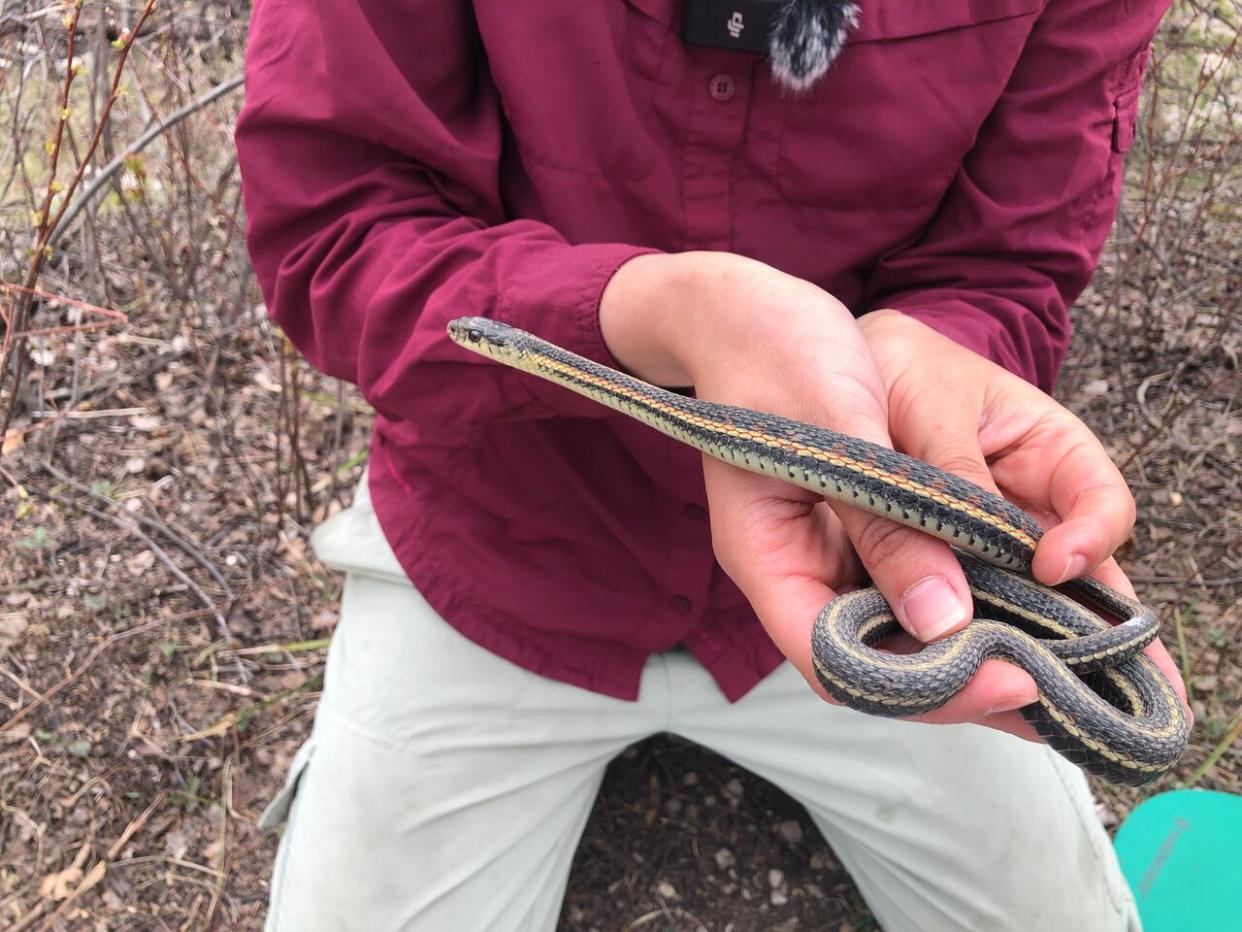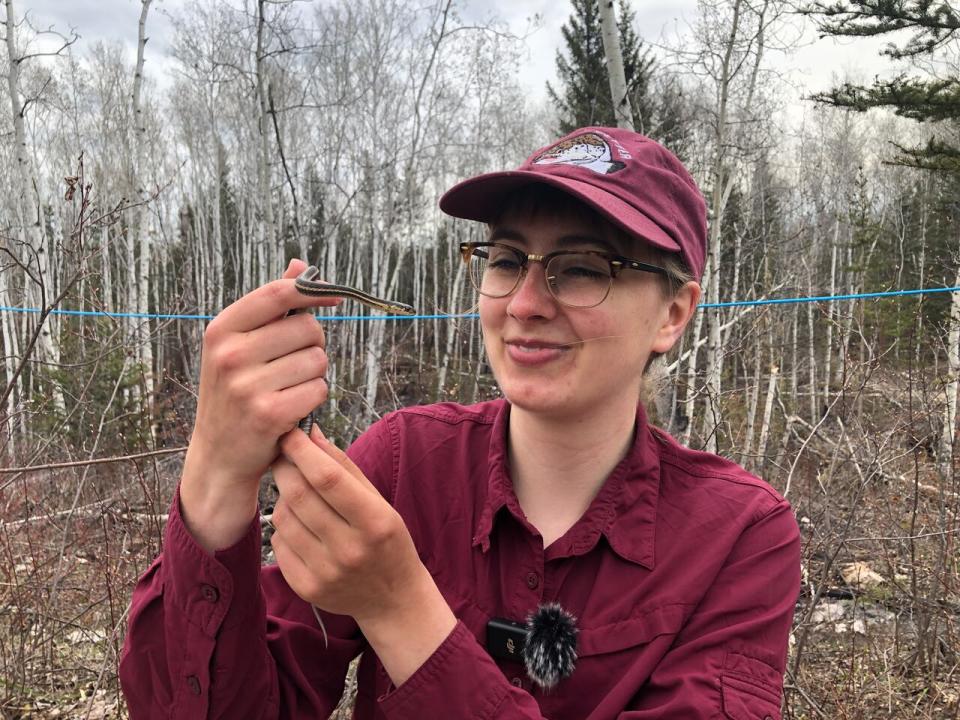N.W.T. snake assessed as 'species of concern'

The only known reptile in the Northwest Territories could soon be added to the territory's list of species of risk.
The red-sided garter snake lives around Fort Smith, but after last summer's wildfires burned much of their habitat in the South Slave, the territory's species at risk committee is reporting that the snake's population is under threat.
Johanna Stewart, a researcher studying the red-sided garter snake population in Fort Smith, says she's been visiting areas where there are typically hundreds of snakes but so far hasn't seen anywhere close to those numbers.
"It's possible that snakes are still yet to emerge, we may still see more coming out," she said. "It's also possible that these snakes have moved to different areas, or that their population numbers have changed."
The N.W.T. species at risk committee announced that it assessed the snake as a "species of concern" earlier this month. This came after a meeting in Fort Smith to assess the species in late April.
That means that the species is at risk of becoming threatened or endangered in the territory. It's the first time the committee assessed the red-sided garter snake.
The committee will report its assessment to a group called the Conference of Management Authorities (CMA) in May. The CMA will then meet with N.W.T. communities and decide whether the red-sided garter snake should be added to the territory's list of species at risk. If added, it would still be considered a species of special concern.
Stewart says there are a few possible explanations for why they're not seeing the usual large populations. One is that the snakes have changed their habitat use and are hanging out in areas where they're not normally seen.
"But it's also possible that there were losses in the fire," she said.

Johanna Stewart is a researcher studying the red-sided garter snake population in Fort Smith. She hopes her work will inform government decisions in how to protect the snake and how to manage land impacted by wildfires. (Meghan Roberts/CBC)
Anecdotally Stewart said that she's seen snakes that seem to have burn marks or scars from the fire.
She said it also could be that burned forest has left the snakes more exposed to predators and that could also be contributing to a smaller population.
Stewart has been trained to safely capture the snakes and will spend the summer weighing, measuring and tagging them for a report to inform government on how best to protect the species and to manage land in a way that allows wildlife to recover from major climate events like wildfires.
She says she expects to have some preliminary results before the winter but will be back in the field next summer and have more information that she hopes to share with the community and territorial governments.
A report from the species at risk committee says that the extent of the 2023 wildfire season has created "urgent need" for more information on the snake, its habitat and the factors that threaten it.
That report suggests creating a working group where members of the public can meet to collect and share information on the snakes. It also suggests promoting public education initiatives to conserve red-sided garter snakes.

